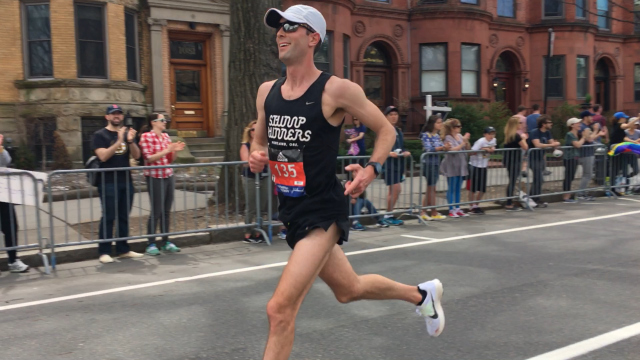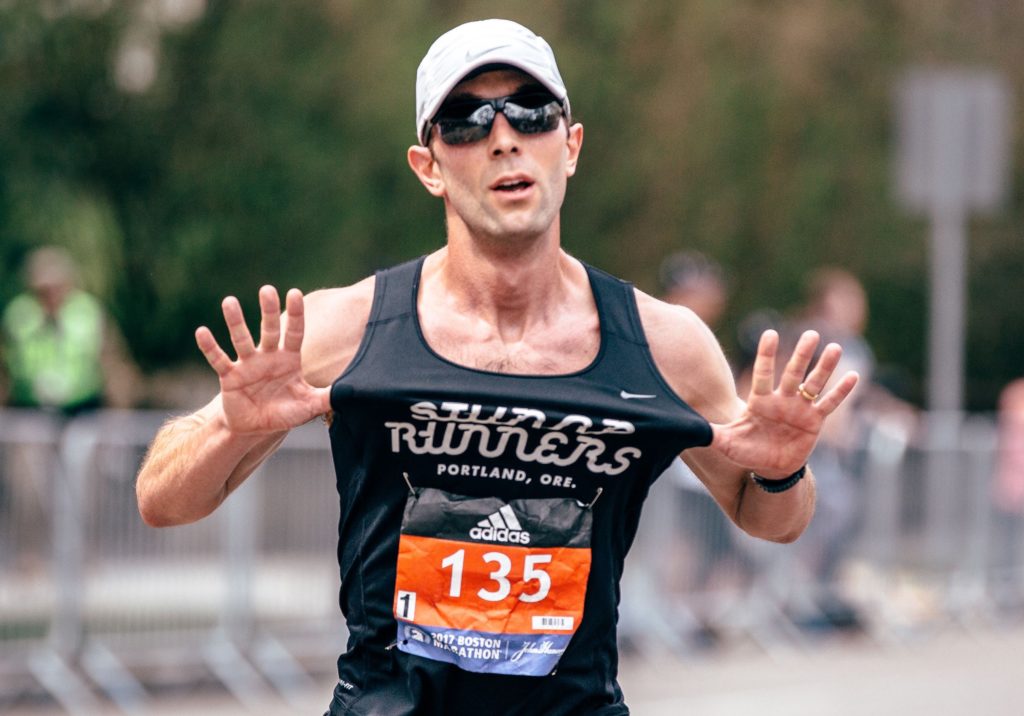26.2 miles is an enchanting distance; it’s approachable but long enough to humble even the best runners. What is it about the marathon that has captured the imaginations of so many of us?

Perhaps the marathon is so captivating because conquering it is so elusive.
For every great race, you might have several failed attempts. 26.2 miles is just so challenging that even with “perfect” fitness, a poor race is still a likely possibility.
I’m fond of saying that after mile 20, the marathon is the Wild West. It’s unpredictable and you don’t know what might happen.
Even the best training cycles can effectively be wasted with poor weather on the day (anybody who ran the 2018 Boston Marathon understands this unfortunate reality!), a single fast mile too early in the race, or unpredictable GI distress.
Nevertheless, we are runners and we will run.
And that’s what makes running so special. No matter what kind of race we have, there’s a little voice inside our heads that encourages us to think bigger, act bolder, and race with more guts.
We hear:
- I think I could have gone a little faster at the end…
- But if it were cooler, I’d have gotten at least 3 more minutes!
- Well if I didn’t get sick a month ago I’d have felt stronger.
- Next time, my training is going to be so much better!
Then, we’re back on the starting line in a few short months, ready to take our shot at the elusive 26.2 mile distance yet again.
I want to fully capture the hope, fear, joy, sacrifice, and transformation that’s possible with the marathon. And I couldn’t think of a better person to introduce you to than Peter Bromka.
Peter Bromka on the Marathon: “I doubted it was even possible”

I ran competitively against Peter while we were both in college. He was at Tufts University while I ran for Connecticut College.
Bromka was faster. In college, he was consistently a Varsity runner for their competitive Division III cross country team. But while he was a very good college runner, I wouldn’t say he was a standout athlete.
Things started to change post-collegiately when Peter started running marathons. His first was 2:56 – a relatively pedestrian time by a former collegiate runner (one who was capable of running 25:xx for a 5-mile cross country course).
Soon, he dropped his time to 2:47. And then 2:41. His progression of improvement over 26.2 miles is eye-popping. After that 2:41, he ran:
- 2:36
- 2:34
- 2:29
- 2:23
- 2:19
His fastest finish came last December at the 2018 California International Marathon. His official time – 2:19:40 – missed the Olympic Trials Qualifying standard by a mere 40 seconds.
This progression gives Peter Bromka one of the most fascinating stories in marathon running today. It’s rare. It’s unique. And we just don’t see DIII runners flirting with Olympic Trials Qualifying times very often!
I brought Peter on the podcast to talk about this progression and the mental and physical adjustments he’s had to make to continue improving.
In this episode, we talk about:
- How did Peter’s mindset about training and racing change as he got faster?
- What role does fear play in how you think about breaking certain time barriers?
- Did he ever think he had reached his physiological limit? What then?
- What is it about the Boston Marathon that makes it so special (and difficult!)?
Peter Bromka is like a philosopher of running. You’ll love hearing him wax poetic about the marathon distance and what it means to run it well.
Subscribe to the Strength Running Podcast in iTunes, Spotify, or Stitcher.
Show Links & Resources:
- Peter’s writing on running
- Follow Peter on Twitter (you’ll thank me)
- Our Boston Marathon Course Guide
- How to recover from a marathon
- How to qualify for the Boston Marathon
- Peter’s newsletter, The Positive Split
Are you running your first (or 100th) marathon? Check out all of our training and coaching programs to help you conquer 26.2 miles!